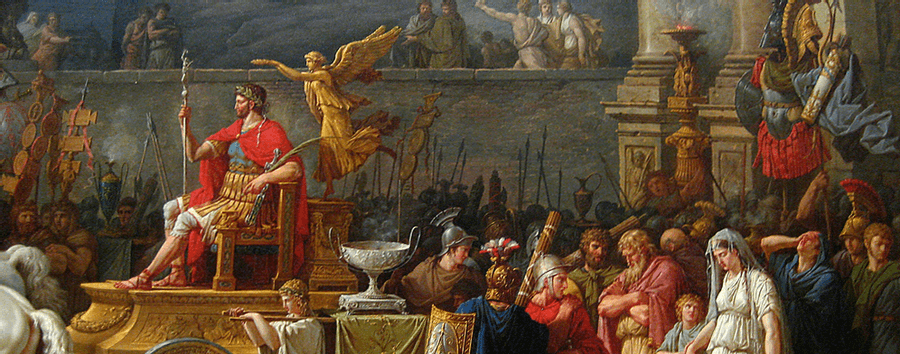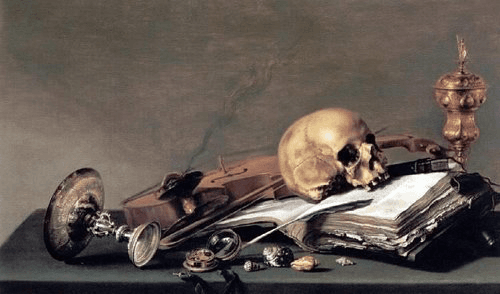How to Accept Mortality: The History of Memento Mori
Curated from: dailystoic.com
Ideas, facts & insights covering these topics:
7 ideas
·2.88K reads
22
1
Explore the World's Best Ideas
Join today and uncover 100+ curated journeys from 50+ topics. Unlock access to our mobile app with extensive features.
Memento Mori
“Memento Mori,” or translated in English, “Remember you must die.” The point of this reminder isn’t to be morbid or promote fear, but to inspire, motivate and clarify. The idea has been central to art, philosophy, literature, architecture, and more throughout history.
As Socrates says in Plato’s Phaedo, “The one aim of those who practice philosophy in the proper manner is to practice for dying and death.”
46
535 reads
STOICS
The Stoics used Memento Mori to invigorate life, and to create priority and meaning. They treated each day as a gift, and reminded themselves constantly to not waste any time in the day on the trivial and vain.
“Let us prepare our minds as if we’d come to the very end of life. Let us postpone nothing. Let us balance life’s books each day…The one who puts the finishing touches on their life each day is never short of time.”
-Seneca
47
432 reads
ROMANS
Memento Mori is believed to have originated from an ancient Roman tradition. After a major military victory, the triumphant military generals were paraded through the streets to the roars of the masses. But riding in the same chariot, standing just behind the worshipped general, was a slave. The slave’s sole responsibility for the entirety of the procession was to whisper in the general’s ear continuously, “Respice post te. Hominem te esse memento. Memento mori!”
“Look behind. Remember thou art mortal. Remember you must die!”
41
384 reads
EGYPTIANS
Excavated mummies, tombs, and pyramids reveal that remembering death was entrenched in ancient Egyptian culture. Egyptologists maintain the preservation of dead bodies and the building of elaborate death chambers were an act of celebrating life, and a reverence for its ephemeralness.
In the height of celebration, Egyptian custom was to set remembrance to the frailness and fleetingness of festival. Through the visual of the skeleton and the pronouncing of the chant, celebrators reeled in the jollity to acknowledge the moment would soon pass so not to take it for granted.
37
348 reads
VANITAS
Life is fleeting so best to not waste it on meaningless goods and pleasures. That’s the message behind vanitas art. Dutch Golden Age artists of the 17th century used still-life as moral instruction. Artists emphasized the emptiness and futility of earthly items. Skulls, candles, hourglasses, watches, rotting fruit, wilting flowers, and fraying books sat atop a table to remind viewers just how precious life is.
40
336 reads
A MODERN RESURGENCE
While Memento Mori has fallen from consciousness compared to its historical relevance, mortality motivation is practiced modernly in fueling successful entrepreneurs, artists, athletes, authors, among others.
37
370 reads
“Remembering that I’ll be dead soon is the most important tool I’ve ever encountered to help me make the big choices in life. Almost everything — all external expectations, all pride, all fear of embarrassment or failure — these things just fall away in the face of death, leaving only what is truly important. Remembering that you are going to die is the best way I know to avoid the trap of thinking you have something to lose. You are already naked. There is no reason not to follow your heart.”
STEVE JOBS
63
484 reads
IDEAS CURATED BY
“No man ever steps in the same river twice, for it is not the same river and he is not the same man” -Heraclitus
CURATOR'S NOTE
The one eternal truth – rich or not, successful or not, religious, philosophical, it doesn’t matter – you will die. From the beginning of time to the end, death is the one universal inescapable commonality.
“
Similar ideas
3 ideas
You Must Stare This Scary Fact in the Face
ryanholiday.net
5 ideas
Why death matters
medium.com
3 ideas
3 Stoic Mantras To Build Your Life On
Daily Stoic
Read & Learn
20x Faster
without
deepstash
with
deepstash
with
deepstash
Personalized microlearning
—
100+ Learning Journeys
—
Access to 200,000+ ideas
—
Access to the mobile app
—
Unlimited idea saving
—
—
Unlimited history
—
—
Unlimited listening to ideas
—
—
Downloading & offline access
—
—
Supercharge your mind with one idea per day
Enter your email and spend 1 minute every day to learn something new.
I agree to receive email updates




